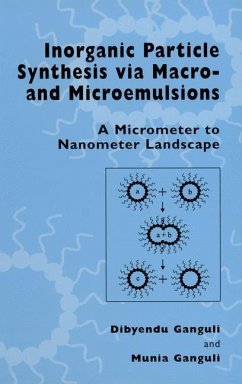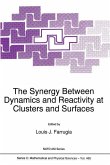`This is one of the first texts to deal with this significant and growing area in metal catalysed reactions. Not only does it fill a usefulniche, but it fills it well, and can be thoroughly recommended both as an introduction and as a handbook for anyone working in this important field.' -- Journal of Organometallic Chemistry, 304 (1986)
"`The most comprehensive single review ever published of supported metal complexes, including polymer-bound catalysts, has recently appeared in book form. ... This eleven chapter, 318 page text is well written and well organized.' -- Polymer News, 1986
"`Though there have been a number of comprehensive reviews on the subject of supported metal complex catalysts, as well as a number of critical book chapters, this is the first full text devoted entirely to this subject. For this reason alone it is a book which should be acquired by those active in this and related areas ... a work of this depth and it is a tribute to Professor Hartley that he has achieved this.' -- Reactive Polymers
It is now IS years since the first patents in polymer supported metal complex catalysts were taken out. In the early days ion-exchange resins were used to support ionic metal complexes. Soon covalent links were developed, and after an initially slow start there was a period of explosive growth in the mid to late 1970s during which virtually every homogeneous metal complex catalyst ever reported was also studied bound to a support. Both polymers and inorganic oxides were studied as supports, although the great preponderance of workers studied polymeric supports, and of these polystyrene was by far the commonest used. This period served to show that by very careful design polymer-supported metal complex catalysts could have specific advantages over homogeneous metal complex catalysts. However the subject was a complicated one. Merely immobilising a successful metal complex catalyst to a functionalised support rarely yielded other than an inferior version of the catalyst. Amongst the many discouraging results of the 1970s, there were more than enough results that were sufficiently encouraging to demonstrate that, by careful design, supported metal complex catalysts could be prepared in which both the metal complex and the support combined together to produce an active catalyst which, due to the combination of support and complex, had advantages of activity, selectivity and specificity not found in homogeneous catalysts. Thus a new generation of catalysts was being developed.
Hinweis: Dieser Artikel kann nur an eine deutsche Lieferadresse ausgeliefert werden.
"`The most comprehensive single review ever published of supported metal complexes, including polymer-bound catalysts, has recently appeared in book form. ... This eleven chapter, 318 page text is well written and well organized.' -- Polymer News, 1986
"`Though there have been a number of comprehensive reviews on the subject of supported metal complex catalysts, as well as a number of critical book chapters, this is the first full text devoted entirely to this subject. For this reason alone it is a book which should be acquired by those active in this and related areas ... a work of this depth and it is a tribute to Professor Hartley that he has achieved this.' -- Reactive Polymers
It is now IS years since the first patents in polymer supported metal complex catalysts were taken out. In the early days ion-exchange resins were used to support ionic metal complexes. Soon covalent links were developed, and after an initially slow start there was a period of explosive growth in the mid to late 1970s during which virtually every homogeneous metal complex catalyst ever reported was also studied bound to a support. Both polymers and inorganic oxides were studied as supports, although the great preponderance of workers studied polymeric supports, and of these polystyrene was by far the commonest used. This period served to show that by very careful design polymer-supported metal complex catalysts could have specific advantages over homogeneous metal complex catalysts. However the subject was a complicated one. Merely immobilising a successful metal complex catalyst to a functionalised support rarely yielded other than an inferior version of the catalyst. Amongst the many discouraging results of the 1970s, there were more than enough results that were sufficiently encouraging to demonstrate that, by careful design, supported metal complex catalysts could be prepared in which both the metal complex and the support combined together to produce an active catalyst which, due to the combination of support and complex, had advantages of activity, selectivity and specificity not found in homogeneous catalysts. Thus a new generation of catalysts was being developed.
Hinweis: Dieser Artikel kann nur an eine deutsche Lieferadresse ausgeliefert werden.
`This is one of the first texts to deal with this significant and growing area in metal catalysed reactions. Not only does it fill a usefulniche, but it fills it well, and can be thoroughly recommended both as an introduction and as a handbook for anyone working in this important field.'
Journal of Organometallic Chemistry, 304 (1986)
`The most comprehensive single review ever published of supported metal complexes, including polymer-bound catalysts, has recently appeared in book form. ... This eleven chapter, 318 page text is well written and well organized.'
Polymer News, 1986
`Though there have been a number of comprehensive reviews on the subject of supported metal complex catalysts, as well as a number of critical book chapters, this is the first full text devoted entirely to this subject. For this reason alone it is a book which should be acquired by those active in this and related areas ... a work of this depth and it is a tribute to Professor Hartley that he has achieved this.'
Reactive Polymers
Journal of Organometallic Chemistry, 304 (1986)
`The most comprehensive single review ever published of supported metal complexes, including polymer-bound catalysts, has recently appeared in book form. ... This eleven chapter, 318 page text is well written and well organized.'
Polymer News, 1986
`Though there have been a number of comprehensive reviews on the subject of supported metal complex catalysts, as well as a number of critical book chapters, this is the first full text devoted entirely to this subject. For this reason alone it is a book which should be acquired by those active in this and related areas ... a work of this depth and it is a tribute to Professor Hartley that he has achieved this.'
Reactive Polymers
`This is one of the first texts to deal with this significant and growing area in metal catalysed reactions. Not only does it fill a usefulniche, but it fills it well, and can be thoroughly recommended both as an introduction and as a handbook for anyone working in this important field.'
Journal of Organometallic Chemistry, 304 (1986)
`The most comprehensive single review ever published of supported metal complexes, including polymer-bound catalysts, has recently appeared in book form. ... This eleven chapter, 318 page text is well written and well organized.'
Polymer News, 1986
`Though there have been a number of comprehensive reviews on the subject of supported metal complex catalysts, as well as a number of critical book chapters, this is the first full text devoted entirely to this subject. For this reason alone it is a book which should be acquired by those active in this and related areas ... a work of this depth and it is a tribute to Professor Hartley that he has achieved this.'
Reactive Polymers
Journal of Organometallic Chemistry, 304 (1986)
`The most comprehensive single review ever published of supported metal complexes, including polymer-bound catalysts, has recently appeared in book form. ... This eleven chapter, 318 page text is well written and well organized.'
Polymer News, 1986
`Though there have been a number of comprehensive reviews on the subject of supported metal complex catalysts, as well as a number of critical book chapters, this is the first full text devoted entirely to this subject. For this reason alone it is a book which should be acquired by those active in this and related areas ... a work of this depth and it is a tribute to Professor Hartley that he has achieved this.'
Reactive Polymers








